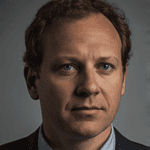
The Significance of NATO Talks in Today’s Political Climate
As the world watches closely, Senator Marco Rubio has arrived in Brussels for crucial NATO discussions, a meeting that comes at a time of heightened tension and uncertainty in international politics. With the backdrop of former President Donald Trump’s controversial agenda still echoing in the halls of power, the stakes for these talks could not be higher. The question on everyone’s mind is: what can we expect from these discussions, and how will they shape the future of NATO and U.S. foreign policy?

Understanding NATO’s Role in Global Security
NATO, or the North Atlantic Treaty Organization, has been a cornerstone of global security since its inception in 1949. The alliance was formed to provide collective defense against potential aggressors, primarily during the Cold War. Today, NATO faces new challenges, including cyber threats, terrorism, and the resurgence of authoritarian regimes.
In this context, Rubio’s presence at the talks is particularly significant. As a member of the Senate Foreign Relations Committee, he has been vocal about the need for a strong NATO alliance. He believes that unity among member states is essential to counter threats and maintain global stability.
Key Issues on the Agenda
During the NATO talks, several pressing issues are expected to be discussed:
- Defense Spending: Member nations are often criticized for not meeting the 2% GDP defense spending target. Will there be a renewed commitment to this goal?
- Cybersecurity: With increasing cyber threats from state and non-state actors, how will NATO enhance its cyber defense capabilities?
- Relations with Russia: Given the ongoing tensions with Russia, what strategies will NATO adopt to deter aggression?
- Terrorism: The threat of terrorism remains a significant concern. How will NATO adapt its strategies to address this evolving threat?
These discussions are critical, especially considering the mixed signals sent by the previous U.S. administration regarding NATO’s importance.

The Impact of Trump’s Agenda on NATO Relations
Trump’s presidency was marked by a controversial approach to foreign policy, particularly regarding NATO. He often criticized member nations for not contributing enough financially, leading to concerns about the future of the alliance. Many wonder if Rubio’s participation in these talks will signal a shift back to a more traditional U.S. stance on NATO.
A Bipartisan Approach to Foreign Policy
Rubio’s attendance is seen as an opportunity to reinforce bipartisan support for NATO. While there are differing opinions on how to approach foreign policy, the consensus among many lawmakers is that a strong NATO is vital for U.S. interests. This meeting could serve as a platform for reaffirming commitments and addressing concerns head-on.
What Will Be the Outcome of These Talks?
As the talks progress, the outcomes will be closely monitored by both allies and adversaries. The potential for a renewed commitment to NATO principles could reshape the geopolitical landscape. However, skepticism remains about whether the discussions will lead to concrete actions or merely serve as a platform for rhetoric.
The Role of Public Opinion
Public opinion plays a significant role in shaping foreign policy. With increasing polarization in U.S. politics, how will the American public respond to the outcomes of these talks? Will there be support for increased defense spending, or will there be pushback against what some may view as unnecessary military commitments?

The Future of NATO: Challenges Ahead
Looking ahead, NATO faces numerous challenges that could impact its effectiveness. The rise of China as a global superpower, ongoing conflicts in the Middle East, and internal divisions among member states are just a few of the hurdles that lie ahead.
The Importance of Unity
For NATO to remain relevant, unity among member states is crucial. The discussions led by Rubio and other leaders in Brussels will be pivotal in determining how NATO adapts to these challenges. Will they emerge with a clear strategy, or will the divisions continue to hinder progress?
Final Thoughts: A Pivotal Moment for NATO
As the NATO talks unfold, the world will be watching closely. The decisions made in Brussels could have far-reaching implications for international relations and global security. Will Rubio’s presence signal a return to a more robust NATO, or will the shadows of past controversies continue to loom large? Only time will tell.
For further reading on NATO’s current challenges and the implications of U.S. foreign policy, check out these articles:
- NATO’s Future: Challenges and Opportunities
- The Impact of Trump’s Presidency on NATO
- Public Opinion and Foreign Policy
Read on...
Table Of Contents
Legal Stuff

